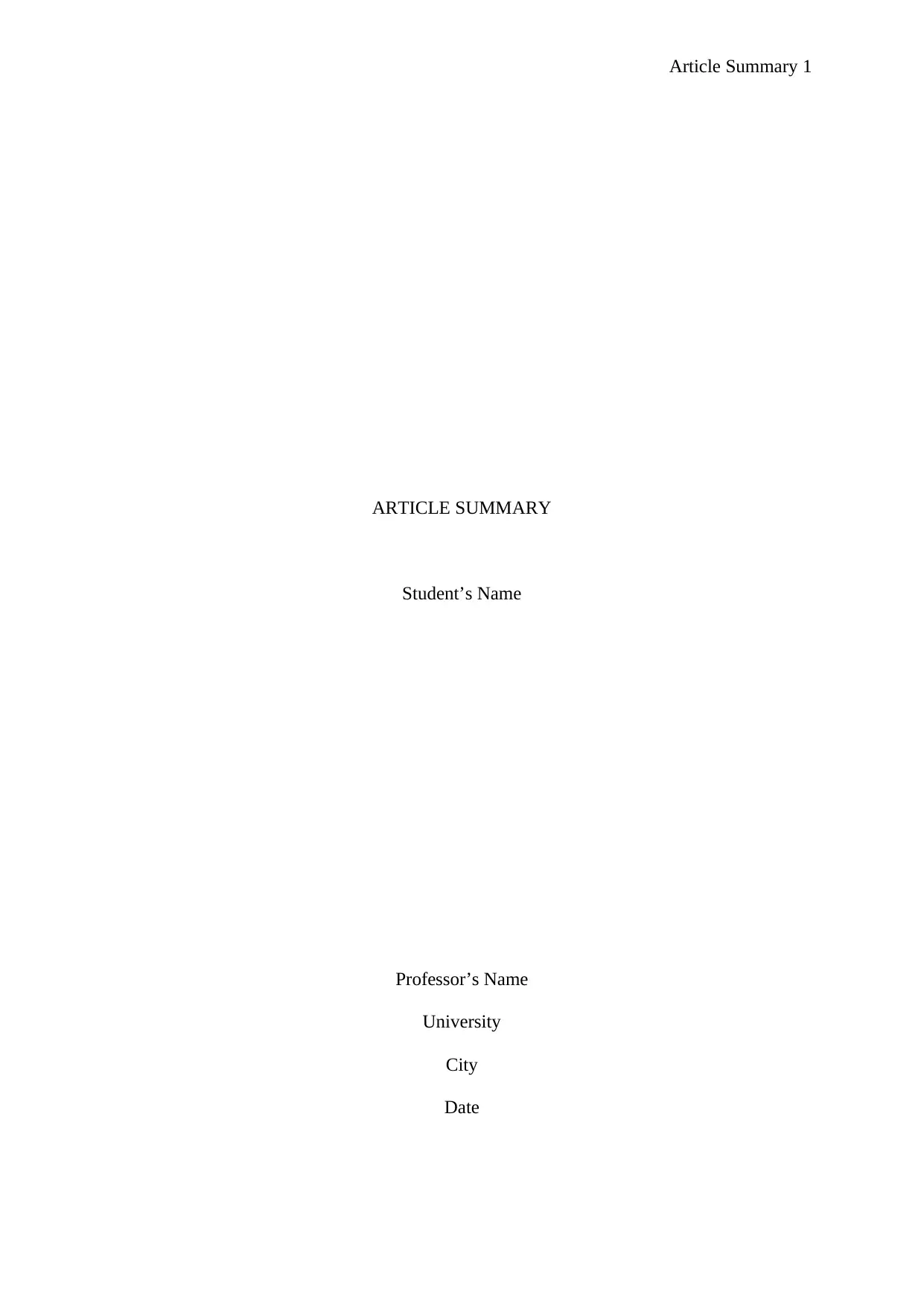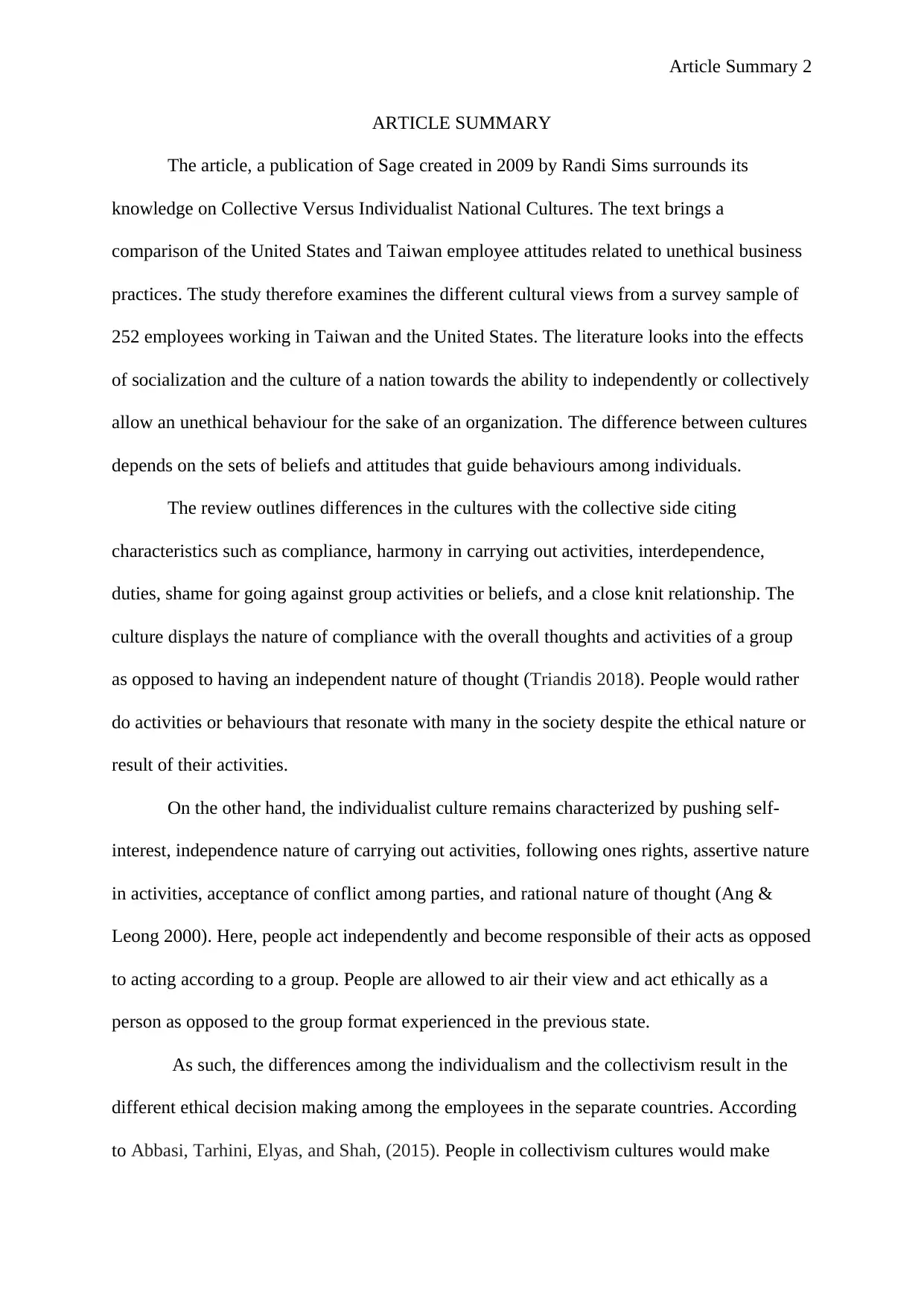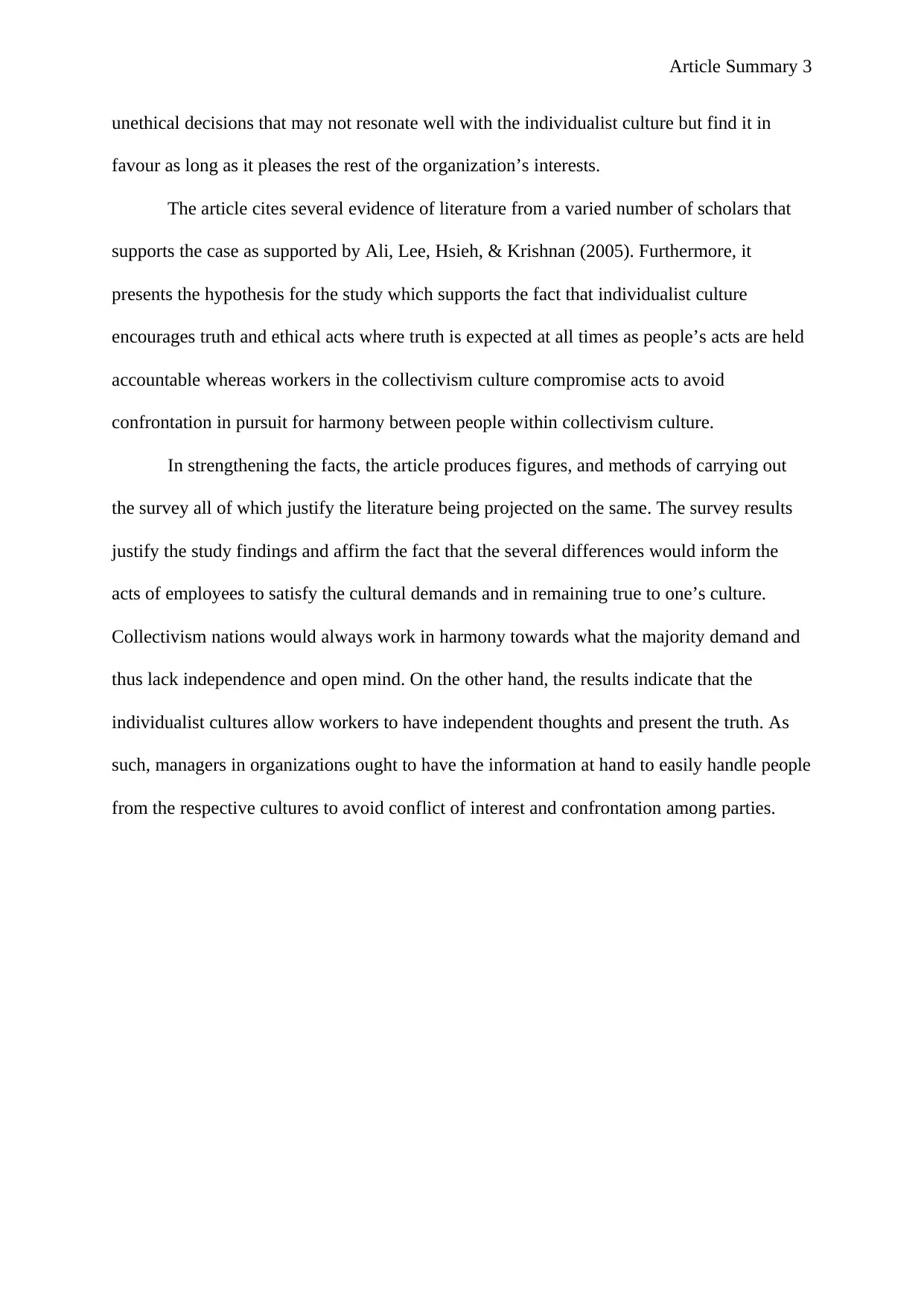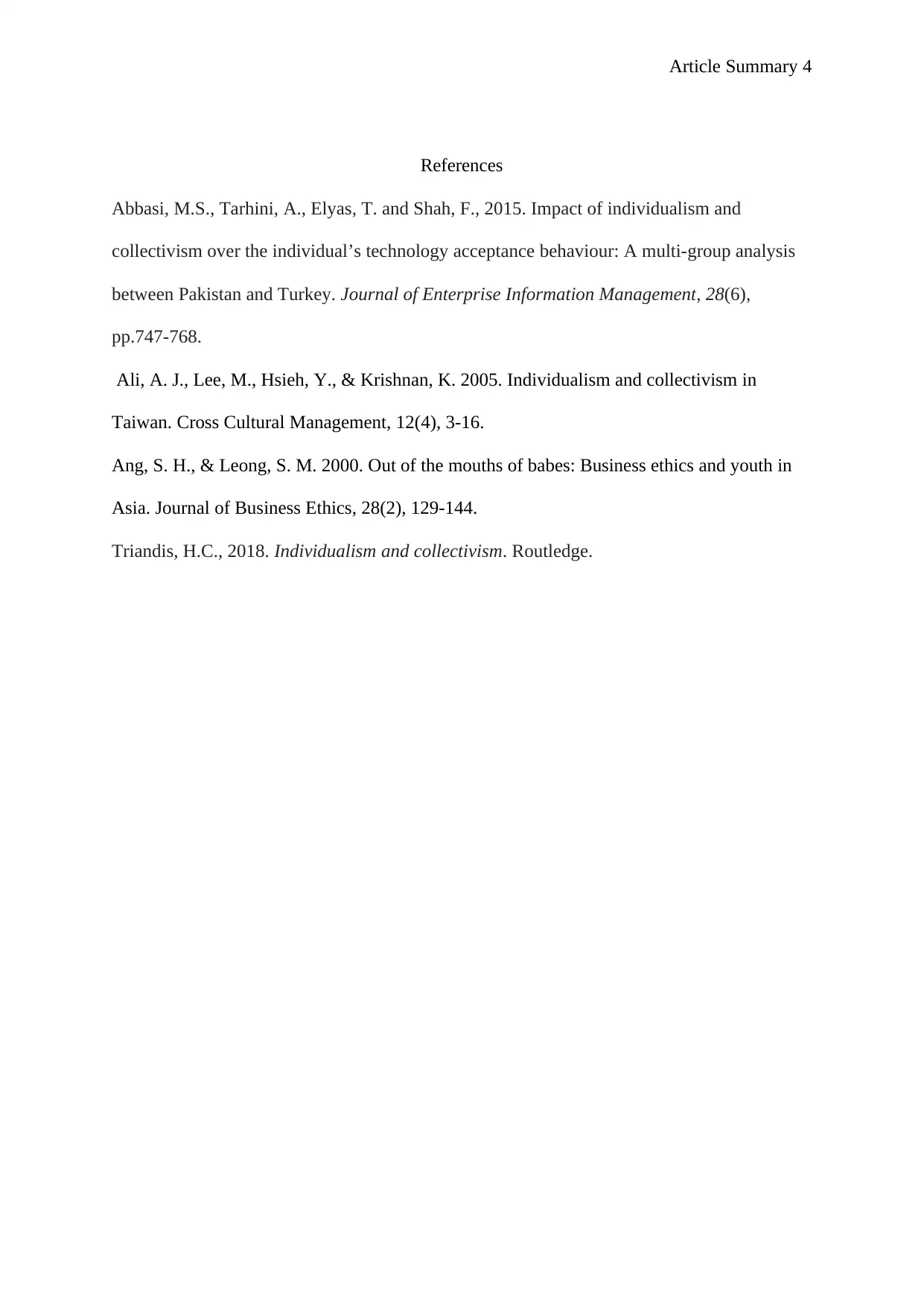Article Summary: A Study of Collective vs Individualist Cultures
VerifiedAdded on 2023/06/03
|4
|776
|230
AI Summary
This article summary focuses on a study comparing employee attitudes in Taiwan (collective culture) and the United States (individualist culture) regarding unethical business practices. The study examines how socialization and national culture influence the acceptance of unethical behavior for organizational benefit. Collective cultures prioritize compliance, harmony, and interdependence, while individualist cultures emphasize self-interest, independence, and individual rights. The research suggests that employees in collectivist cultures are more likely to engage in unethical decisions that benefit the organization, whereas those in individualist cultures prioritize truth and ethical conduct. The survey results support these findings, highlighting the importance of cultural awareness for managers to effectively handle employees from diverse cultural backgrounds and mitigate potential conflicts.
1 out of 4











![[object Object]](/_next/static/media/star-bottom.7253800d.svg)